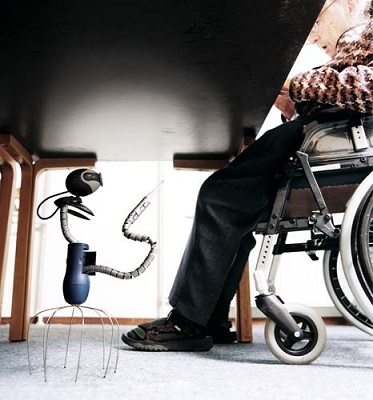
Assistive Technologies (ATs) - which aim to enhance the independence and safety of their recipients - have become an important aspect of social care policy in Europe, with a particularly ambitious programme of implementation in Scotland. Technological advances mean that ATs are seen as a way of upholding a policy of 'care in situ', instead of institutional care, in a period of demographic change and escalating costs.
This programme focused in particular on the technologies associated with Telecare, the remote delivery of personal care, and drew on the research expertise of the proposers: ethical & policy issues, social informatics and the experiences of technology user groups, specifically older people and disabled people. In addition the group had agreement to participate and present at the event from Glasgow City Council, North Lanarkshire Council and from representatives of assistive technology service user organisations.
The team proposed to explore a tension in technology policy, viz. while there is strong and wide-ranging evidence of benefit from the use of these technologies, a greater range of ethical enquiry and understanding of the impact on technology users is needed. The programme brought together technology designers, end users, care technology practitioners and social scientists with recognised research expertise in the field to explore further the social impact of technology based care in Scotland and in comparative context.